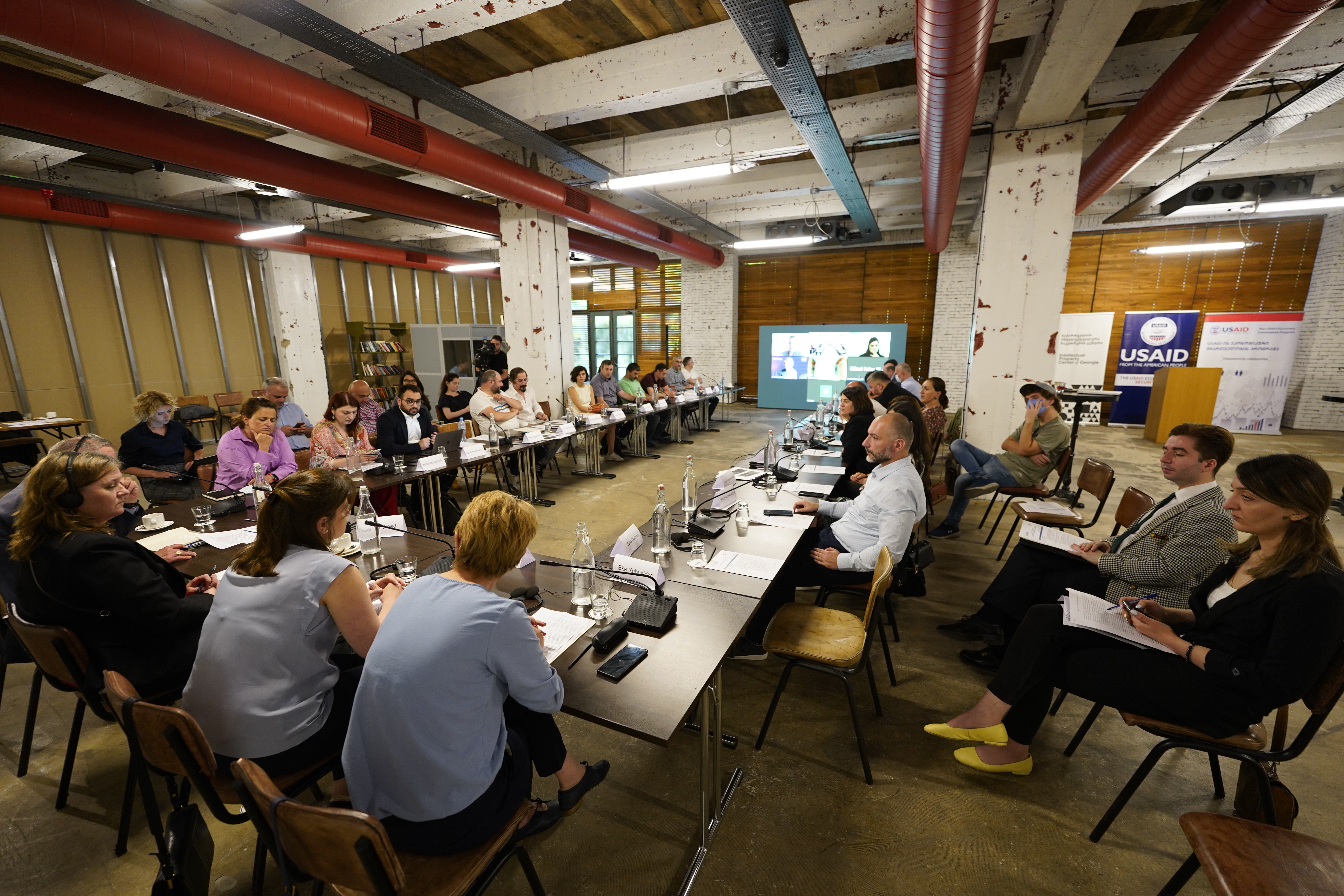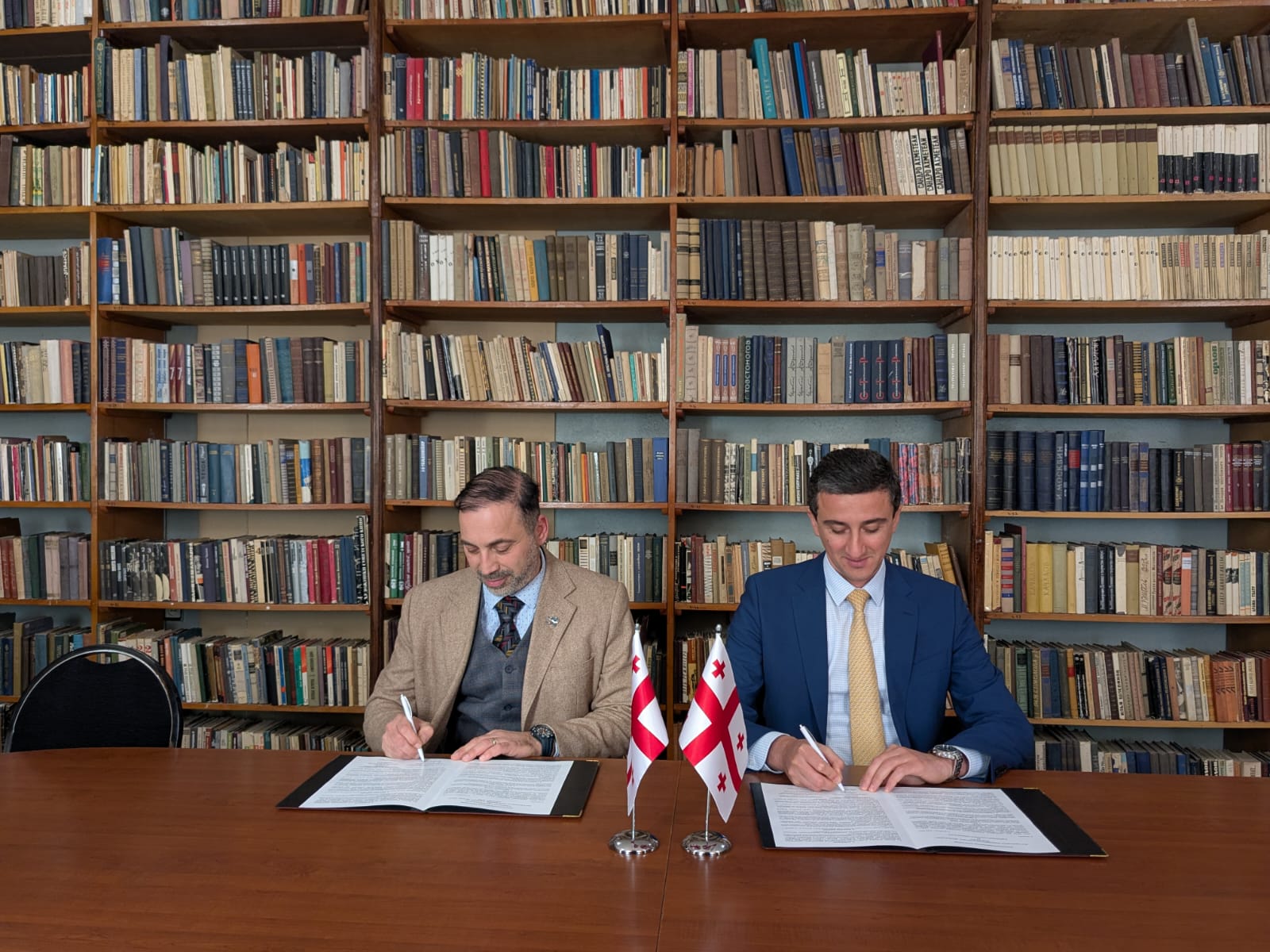Public-Private Dialogue on “Anti-Piracy Policy Changes: New Enforcement Mechanism for Intellectual Property Rights” was organized by USAID and Sakpatenti
July 22, 2022
| |
The USAID Economic Security Program and the USAID Economic Governance Program together with Sakpatenti are implementing series of public-private dialogues sessions to support the introduction and enforcement of the legislative novelties on ongoing policy-making processes against online piracy.
Currently, on July 21, 2022, a dialogue session was held in Tbilisi, with the participation of representatives of private and public sectors, international organizations and experts. The parties discussed the existing challenges in creative industries and the draft of the new, the so-called Notice-and-Takedown mechanism of intellectual property rights enforcement.
Piracy in Georgia is common across many sectors, including the distribution of film and TV series, music, video games, and software. The almost unlimited availability of pirated content negatively affects numerous stakeholders in the private sector. In this regard, the well-known Georgian film director and producer Mr. Levan Koguashvili shared his personal experience with the participants of the meeting: “We are speaking about a new film which had not been released yet and it was already distributed on pirate websites, which damaged our firm and our company. The more active the involvement of the public and the government structures becomes in order to reduce such facts and to ensure availability of a tool for prompt responding, the more beneficial this will be for the development of our industry in general and each film director and producer,” – Mr. Koguashvili noted.
Taking into consideration the international best practices, the new mechanism will enable owners of copyright and related rights, to require from the Intermediary Service Providers (ISPs), according to the established rule, on the basis of a written notice, to restrict access to pirated copies which infringe their copyright/related rights. The draft will establish the grounds for exemption from liability for the Intermediary Service Providers (ISPs). As Ms. Manana Pruidze, Acting Chairperson of the National Intellectual Property Center of Georgia – Sakpatenti, noted: “At present, protection of copyright in the Internet is a serious challenge in Georgia, which significantly damages both the sector and the country’s economy. I think, with the support of the international partners, namely, the UISAID and the European Union programs, the draft changes developed by us will considerably facilitate the introduction of an effective mechanism of enforcement of rights through private legal means.”
According to the assessment of Mr. Ioannis Kikkis, Intellectual Property Rights International Consultant: “The new mechanism is in full compliance with the EU directives and international best practices. This is the so-called soft approach, with simple procedures, which is quite effective in practice in European countries, e.g. the Hungarian Copyright Law, as well as in the USA, e.g. the Copyright Law of the United States”. In this respect, the position of the Intermediary Service Providers (ISPs) is also noteworthy, who will be main actors in the process of enforcement of the new regulation. In the opinion of Mr. Ucha Seturi, Chairman of Small and Medium Telecom Operators Association of Georgia (TOA): “The presented changes will ensure replacing of the existing, “Soviet” system and approach by a European, democratic and modern legal system, which is flexible and with minimal expenses and in minimal period creates an opportunity to reinstate and protect the infringed rights”.
According to Mr. Zurab Bezhashvili, Executive Director of Anti-Piracy Center of Georgia, CEO of the GMI Rights Management: “The country has a great intellectual potential, which is impeded considerably due to systemic infringements of copyright. The current changes will significantly raise the level of copyright protection in the country and owners of rights will already have a mechanism for prompt and effective protection of their rights in the internet.”






